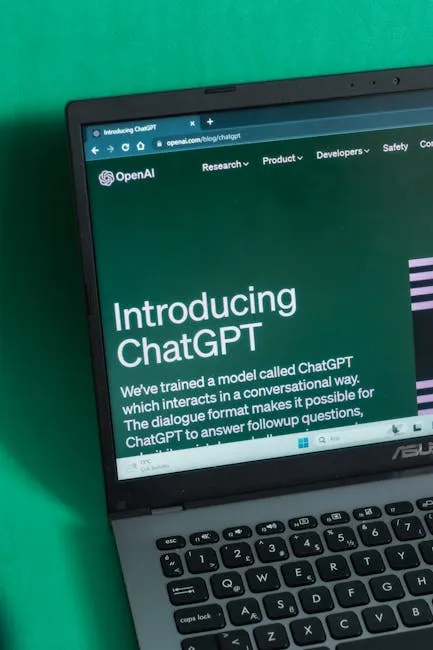OpenAI Found in Violation of German Copyright Laws: What It Means for AI Development
In a significant ruling that could reshape the landscape of artificial intelligence, a German court has determined that OpenAI’s ChatGPT has infringed upon the nation’s copyright laws. This decision comes after it was revealed that OpenAI used licensed musical works to train its language models without obtaining the necessary permissions.
The Court’s Decision
The court’s decision emphasizes the growing scrutiny surrounding AI technologies and their compliance with existing intellectual property laws. OpenAI, a leader in AI development, now faces the challenge of reconciling its innovative pursuits with legal frameworks that were not originally designed for such advanced technologies.
What Exactly Happened?
The ruling stemmed from concerns raised by copyright holders who argued that their licensed music was used without consent. The court found that by incorporating this material into its training datasets, OpenAI had violated German copyright statutes, which protect the rights of creators and artists. As a result, OpenAI has been ordered to pay damages, although the exact amount has yet to be disclosed.
Implications for AI Development
This ruling is likely to have far-reaching implications not only for OpenAI but also for other AI developers and companies. It raises critical questions about how AI models are trained and the datasets they rely on. As AI technologies continue to evolve, the need for clear guidelines on copyright and data usage becomes increasingly urgent.
One of the key takeaways from this case is the need for AI companies to establish transparent and ethical practices regarding data sourcing. If AI development continues on a path that disregards copyright laws, it could lead to a chilling effect on innovation and creativity in the industry.
The Future of AI and Copyright Law
As AI tools become more prevalent in various sectors, the intersection of technology and intellectual property law will require ongoing attention. This ruling in Germany may push other countries to consider similar cases, ultimately leading to more comprehensive regulations that govern AI technologies globally.
For OpenAI and its peers, adapting to these legal challenges means investing in robust compliance strategies to navigate the complexities of copyright law. This may involve seeking licenses for copyrighted materials or developing alternative approaches to training AI models that do not infringe on existing rights.
Conclusion
As the conversation around AI and copyright continues to unfold, it is clear that both creators and developers must work together to create a balanced ecosystem that fosters innovation while respecting intellectual property rights. The recent ruling against OpenAI serves as a reminder of the importance of these principles in the ongoing evolution of technology.
In the coming months, it will be fascinating to observe how OpenAI and other AI companies respond to this ruling and what measures they implement to ensure compliance with copyright laws in the future.
